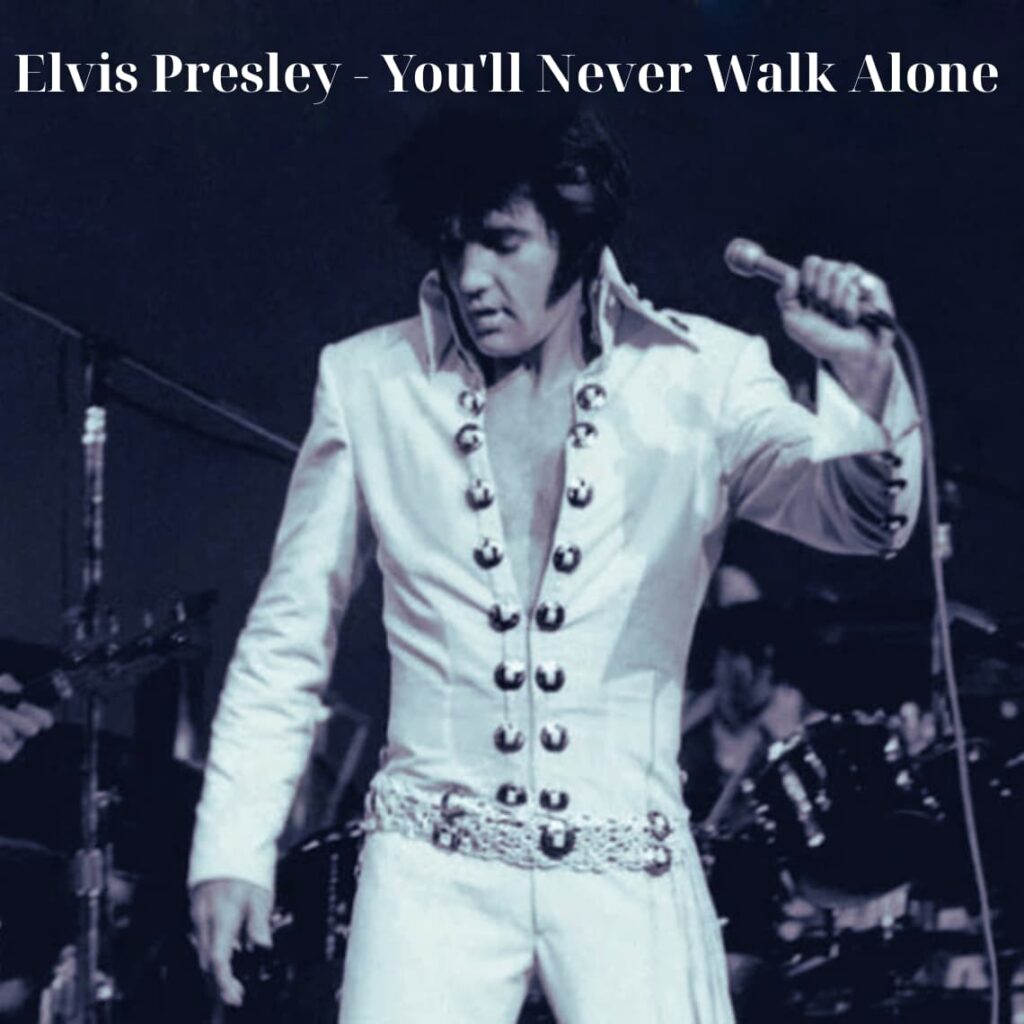
A Timeless Anthem of Hope: Elvis Presley’s “You’ll Never Walk Alone”
Oh, to think of Elvis Presley and the enduring power of his voice, reaching out across the years to touch our very souls. There are few artists who can evoke such a profound sense of memory and a yearning for simpler times, and when he lent his incredible talent to a song like “You’ll Never Walk Alone”, the result was nothing short of breathtaking. It’s a melody that, for many of us, resonates with a spiritual depth, offering solace and strength when the road ahead seems uncertain.
Elvis recorded his version of “You’ll Never Walk Alone” on September 11, 1967, in Nashville. While not one of his blockbuster chart-toppers, it quietly found its way into the hearts of listeners, a testament to its inherent beauty and his heartfelt delivery. When released as a single on March 26, 1968, paired with “We Call On Him,” it reached number 90 on Billboard’s Hot 100 chart. Later, in 1982, it saw a resurgence, hitting number 73 on Billboard’s Country chart. It also appeared on his 1971 budget-label compilation album of the same name, “You’ll Never Walk Alone”, which primarily featured his cherished gospel recordings, a genre very close to the King’s own heart. This particular album reached number 69 on the Billboard 200 and number 20 on the UK Singles Chart, further solidifying its place in his discography.
The story behind this song, however, goes back much further than Elvis’s recording. It hails from the golden age of American musical theater, specifically from the 1945 Rodgers and Hammerstein classic, Carousel. In the context of the musical, the song is sung by Nettie Fowler to comfort her cousin, Julie Jordan, after a profound tragedy. It’s a moment of raw human vulnerability and compassionate support, delivering a message that even in the darkest hours, hope persists, and we are not truly alone. This universal theme, born out of the anxieties of World War II, quickly transcended the stage. It speaks to the human condition, to the trials and tribulations we all face, and the profound comfort found in solidarity and belief.
For Elvis, a man deeply spiritual and known for his love of gospel music, “You’ll Never Walk Alone” was a natural fit. He wasn’t just singing lyrics; he was embodying the very essence of faith and resilience that was so central to his personal life and his extensive body of gospel work. Listening to his rendition, one can almost hear the echoes of Sunday mornings in Memphis, the hymns sung with passion and conviction. It’s less a pop song and more a profound spiritual declaration, delivered with that singular power and vulnerability that only Elvis could command.
The meaning of “You’ll Never Walk Alone” is, at its core, a message of unwavering hope and companionship through adversity. It reassures us that no matter how tumultuous the storm, how dark the night, there is always a dawn, a golden sky waiting. It speaks to the resilience of the human spirit, the importance of keeping one’s head held high, and the comforting knowledge that, even when faced with shattered dreams and formidable challenges, we are connected. It’s a powerful anthem that has resonated far beyond its original intent, becoming an enduring symbol of unity and perseverance, famously embraced by sports fans, and notably by Liverpool Football Club, whose supporters sing it as a hymn of collective strength.
For those of us who grew up with the voice of Elvis as a soundtrack to our lives, this song carries an extra layer of poignancy. It reminds us of a time when music felt less fleeting, more deeply ingrained in the fabric of everyday life. It’s the kind of song you heard on the radio on a quiet Sunday afternoon, or perhaps in a moment of personal reflection. It speaks to the simple, yet profound, truths that anchor us—faith, community, and the enduring promise that we are never truly forsaken. Elvis Presley’s interpretation of “You’ll Never Walk Alone” is more than just a recording; it’s a timeless embrace, a gentle reminder that even when the world feels overwhelming, we can still walk on, holding hope in our hearts, knowing that we are, indeed, never alone.